Why Choose Us
- Ranked in the top 20 law firms by Trustpilot
- Nationwide Legal Coverage
- Free Consultation
- Fixed Fee Terms
- Competitive Rates
- Flexible Payment Plans
- Trusted Legal Care
- UK’s Leading Motoring Solicitors
4.8 out of 5
Our customers rate us
“EXCELLENT”
AS SEEN ON

28.11.2023
Can I Drive on the Day My Ban Ends?
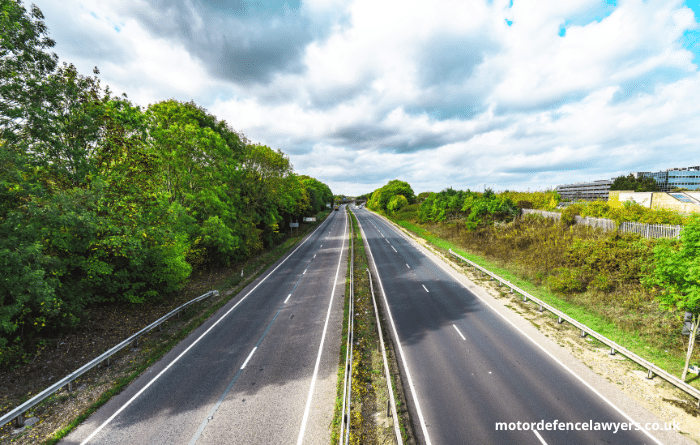
No, in many cases, you cannot drive on the day the ban ends. This is because you might need to (1) re-apply for your driving licence, (2) undergo medical inquiries to verify your fitness to drive, or (3) take an extended retest.
Although you will be eager to return to driving, before you do, you must ensure you have met all necessary criteria imposed, and if you are in any doubt over your position to get behind the wheel again, please seek legal advice first.
Although you will be eager to return to driving, before you do, you must ensure you have met all necessary criteria imposed to drive again. If you find yourself asking “Can I drive on the day my ban ends?” or if you are in any doubt over your position to legally get behind the wheel following a period of disqualification, please seek legal advice first before driving.
Contact our team for a free consultation at 0151 944 4967.
Read on for more details on the things you must do before you can drive again following a disqualification.
A driving disqualification refers to a suspension of a person’s driving privileges and licence to operate a motor vehicle.
Some key points about driving disqualifications:
In summary, a driving disqualification is a punishment for serious driving offences that temporarily or permanently suspends someone’s legal privilege to drive and operate a motor vehicle on public roads. It aims to penalise dangerous drivers and get them off the roads.
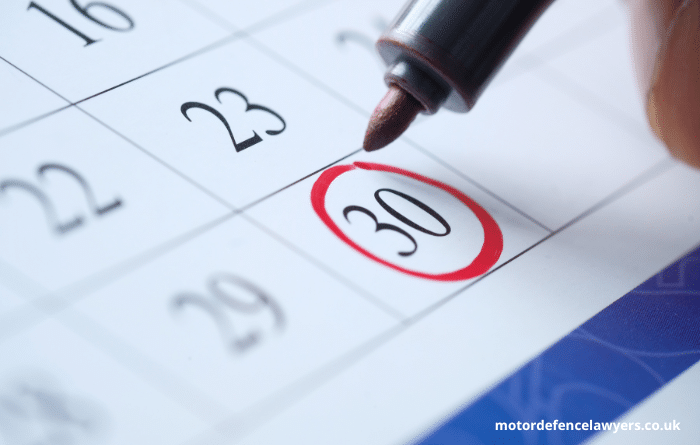
If you have been disqualified from driving, it is essential to confirm the exact date your ban ends before getting back behind the wheel.
Here’s how to calculate it:
If you are unsure of your exact driving ban end date, you can easily check it online using the DVLA’s licence checking service:
Checking your digital driving record is the quickest and easiest way to verify your exact disqualification completion date if you are unsure when your licence suspension ends.
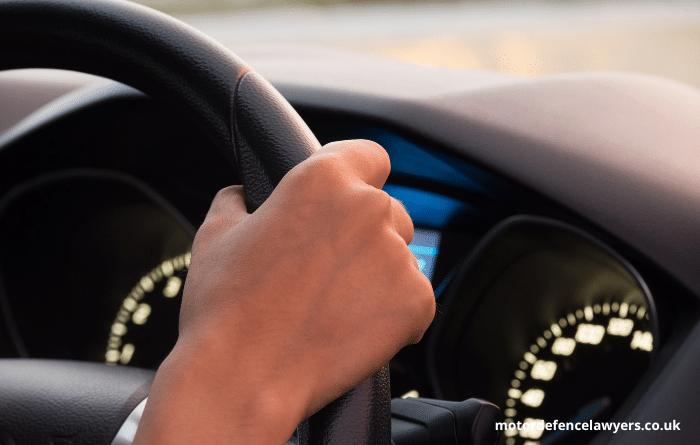
It is not as simple as returning to driving again as soon as the disqualification is over. You can return to driving after a disqualification has ended, if and only if, you have a valid driving licence.
That means that if your driving licence has been surrendered to the DVLA then you will have to re-apply for your full licence again before you can drive.
If you have not surrendered your driving licence, it may be that you were supposed to, and therefore it is important to check whether the driving licence photo card that you have is valid.
If your disqualification is:
In short:
Knowing whether you have to surrender your licence or not and if you’re eligible for drunk driving rehabilitation is important. This impacts the process of restoring your driving privileges once the disqualification period is over.
If you’re banned for any drink driving offences, you may be offered a rehabilitation course. If completed on time, this can reduce your disqualification:
For example:
The exact reduction awarded within these minimum and maximum terms depends on the court but completing rehabilitation can significantly shorten a drink driving disqualification.
Be sure to take the course and provide proof of completion by the court’s deadline to benefit from having your driving ban reduced.
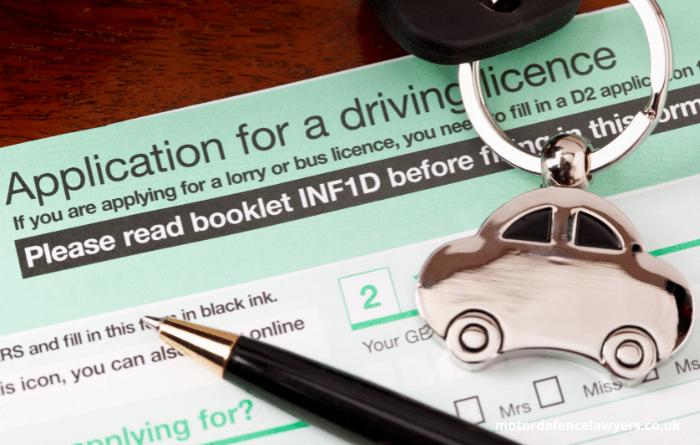
If your ban was 56+ days, you must re-apply to the DVLA when it ends:
Extended Re-Tests
For serious offences like dangerous driving, you may need an extended re-test:
So in summary – after a long ban you must re-apply for your licence and some serious offences will require passing an extended re-test before you can get your driving licence back and start driving again.

If convicted of certain serious offences, you may be classified as a high-risk offender when reapplying for your licence. In this situation, you will need to prove that you are fit to drive by passing a medical examination with the DVLA’s appointed doctors before your licence is reinstated.
You’ll be considered high risk if:
If high risk, you’ll get a D27PH form 90 days before your ban ends. You must fill this form in and send it to the DVLA to re-apply for your driving licence. Once the DVLA have received your application they will send you information about a medical examination.
This involves:
This determines if you’re medically fit to drive again. Failing to get the exam means driving without a valid licence if you drive after your ban. The DVLA may also write to your GP to request whether there is anything within your medical records that suggests that you are not fit to drive.
If you return to driving after the disqualification ends and you fall into this category then you are committing an offence of ‘driving otherwise in accordance with a licence’ as above. This will be the offence that carries the endorsement of penalty points on your driving licence.
Driving before your licence is reinstated or while still disqualified can have serious consequences.
Here’s what you need to know:
If your licence was revoked for 56 days or more and you do not reapply before driving again, you are committing an offence under Section 87(1) of the Road Traffic Act 1988. This carries a fine but no penalty points.
If you would not have qualified for automatic reinstatement, driving again also violates Section 87(1). Now you face 3-6 penalty points and a fine.
Driving while still within a disqualification period breaks Section 103 and is a more serious offence. Penalties include:
The penalties are severe. If you’ve been charged with driving without a valid licence or while disqualified, speak to a solicitor immediately. They can advise your legal options and represent you in court. Don’t risk losing your licence – get professional help.
If you have been charged with one of the above offences, then this is something that Caddick Davies Solicitors can help with – Contact our friendly team to discuss your case on 0151 944 4967.
Yes, in some cases it is possible to apply for early removal of a driving disqualification. Here are the key things to know:
Getting legal help can assist with submitting a strong early removal application. If you’ve served the minimum time, it’s possible to get your licence back sooner. If you need assistance with making such an application, then this is something that Caddick Davies Solicitors can help with – Contact our friendly team to discuss your case on 0151 944 4967.
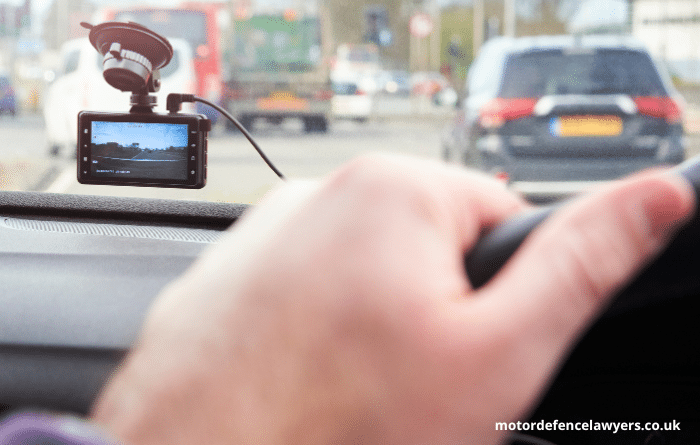
If you’ve been banned from driving and wondering if you can Drive on the Day your Disqualification from Driving Ends, there are certain things you need to be aware of.
In summary, in many cases, it is not as simple as returning to driving after a disqualification has ended because you may need to:
Until you ascertain that none of the above criteria apply to you, you should not drive under any circumstances until the appropriate action has been taken.
Getting your licence back after a driving ban can be complicated. At Caddick Davies Solicitors, our team of motor defence lawyers can help make the process smooth.
We understand the consequences of driving disqualifications and how important it is to get your licence back legally and safely. That’s why we offer a free consultation to discuss your specific situation.
During our conversation, we can:
Our specialist experience means we can give you the right advice to get your licence back and stay legal. Don’t risk complications or further bans – call us at 0151 944 4967 to discuss getting back on the road.
Why Choose Us
We have been successfully representing clients in motoring courts nationwide
Contact us for a free consultation, our expert solicitors will be able to discuss your case and advise on legal options.
Birmingham
Bradford
Bristol
Carlisle
Cardiff
Chelmsford
Huddersfield
Hull
Manchester
Liverpool
Leeds
London
Newcastle
Norwich
Nottingham
Sheffield